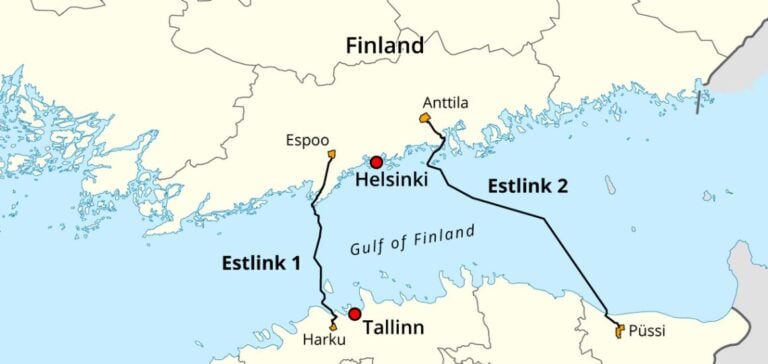Tensions in the Baltic Sea are escalating as an investigation into the damage to the EstLink 2 electrical cable advances. This undersea cable, connecting Finland and Estonia, was disabled on Christmas Day, prompting accusations against the tanker Eagle S, sailing under the Cook Islands flag.
According to Finnish authorities, the vessel is suspected of being part of the Russian “ghost fleet,” a network of ships transporting Russian oil under embargo. Following the incident, the Eagle S was seized and escorted to Kilpilahti near Helsinki, where its crew is being interrogated and thorough inspections are underway. Eight crew members are currently detained as part of the investigation.
A Crucial Swedish Military Contribution
In response to the incident, the Swedish government announced the deployment of a military ship to support the investigation. “With their unique expertise, the Swedish armed forces are helping Finland shed light on what happened,” said Ulf Kristersson, Sweden’s Prime Minister.
Meanwhile, Finnish police reported that the seabed examination is nearly complete, enabling repair work to accelerate. Samples have been collected for detailed analysis, and initial steps to restore the electrical connection are underway.
A Context of Hybrid Warfare
Since Russia’s invasion of Ukraine in February 2022, the Baltic Sea has become the scene of numerous incidents targeting strategic infrastructure. Experts believe these attacks, often labeled as “hybrid warfare,” aim to destabilize Western nations. NATO, which recently welcomed Finland and Sweden as members, has strengthened its military presence in the region to address these increasing threats.
Similar incidents occurred in November 2024 when two telecommunications cables were sabotaged in Swedish waters. In those cases, a Chinese vessel, the Yi Peng 3, was suspected of involvement, heightening international concerns over the security of undersea infrastructure.
The European Union Responds
In the face of these challenges, the European Union has announced measures to enhance the security of undersea cables. These initiatives include adopting new detection technologies, bolstering repair capabilities, and increasing international cooperation. These efforts aim to minimize future risks and protect critical infrastructure that supports communications and energy supplies across Europe.
As investigations continue, Baltic Sea nations are stepping up vigilance and cooperation to address these emerging threats. This latest incident highlights the vulnerability of undersea networks and the need for a collective response to a growing menace.






















